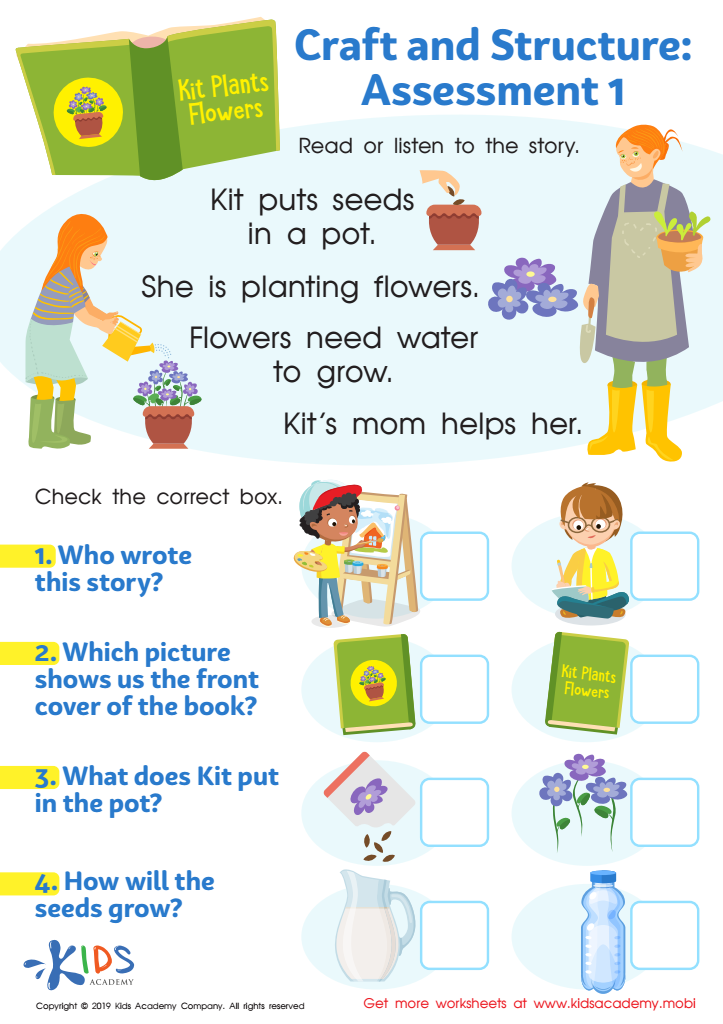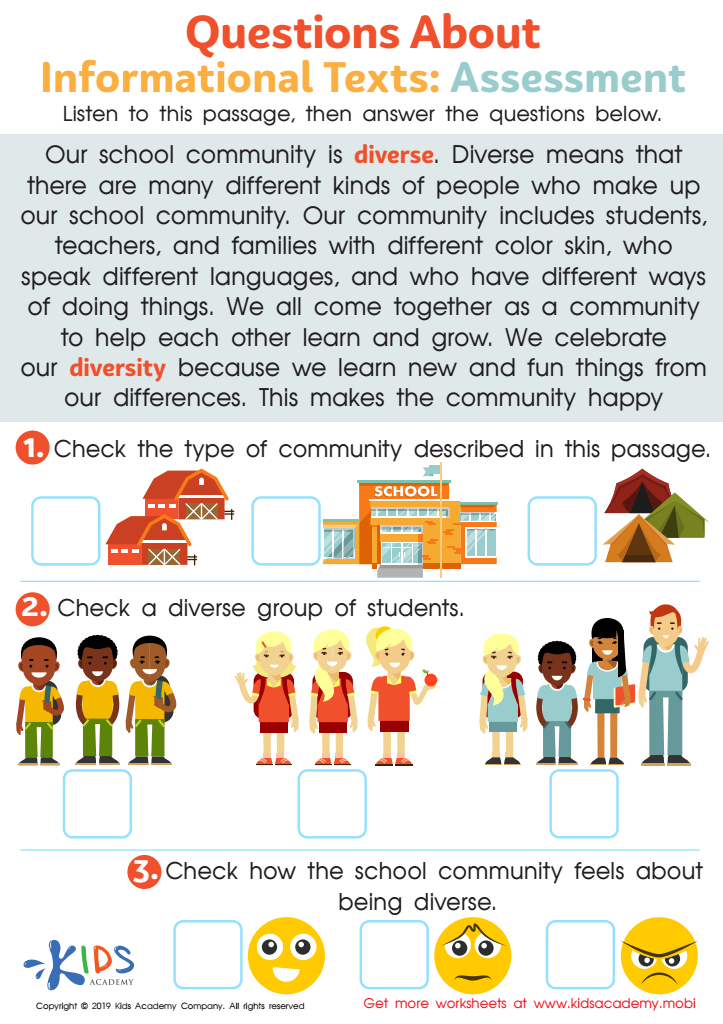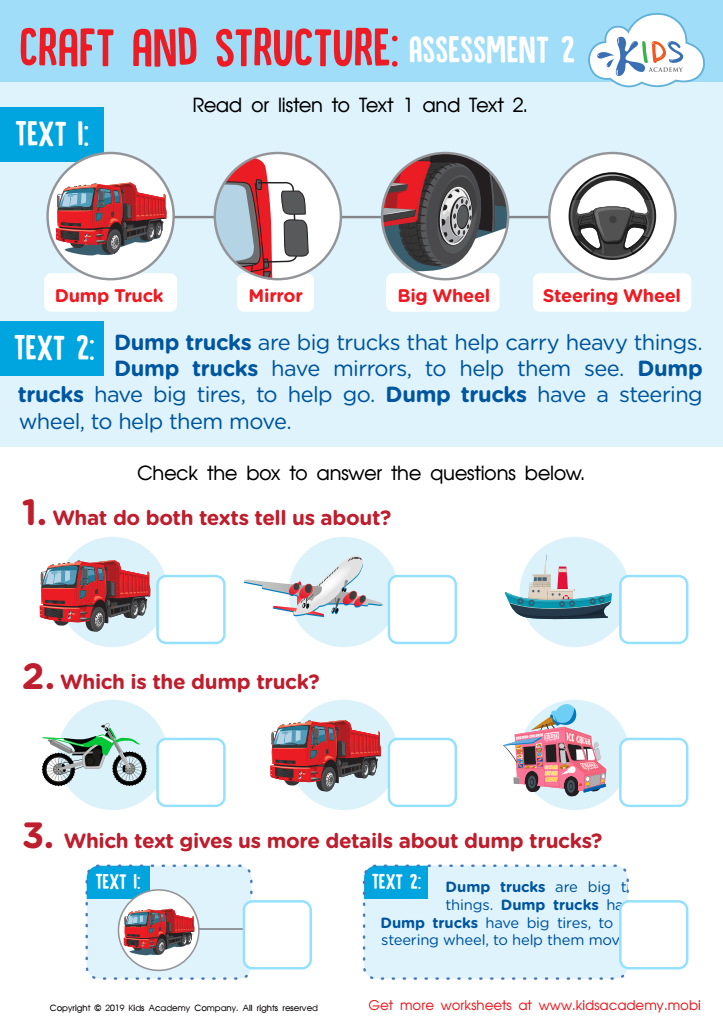Reading Comprehension worksheets activities for 6-Year-Olds
3 filtered results
-
From - To


Craft and Structure: Assessment 1 Worksheet


Questions About Informational Texts: Assessment 1 Worksheet


Craft and Structure: Assessment 2 Worksheet
Reading Comprehension worksheets activities play a critical role in the development of students' literacy skills. These activities are not just about understanding the words on a page; they're about digging deeper into the text, analyzing its meaning, and enhancing the reader's ability to understand, interpret, and engage with different types of written materials. The benefits of incorporating Reading Comprehension worksheets activities into educational programs are vast and varied, contributing significantly to students' academic growth and success.
Firstly, Reading Comprehension worksheets activities are designed to improve vocabulary. As students encounter new words within texts, they learn to use context clues to discern meanings, thereby expanding their vocabulary. A richer vocabulary not only improves reading comprehension but also enhances communication skills, both written and oral.
Moreover, these activities encourage critical thinking. Students are often required to infer meaning, make predictions, and draw conclusions based on the information presented in the worksheets. This practice strengthens their ability to think critically and analytically, skills that are indispensable across all areas of their academic and personal lives.
Additionally, Reading Comprehension worksheets activities foster an appreciation for literature and informational texts. By engaging with a variety of genres, students broaden their understanding and appreciation of different writing styles and perspectives. This exposure helps cultivate a lifelong love for reading, which is essential for continuous learning and personal growth.
Furthermore, these activities are adaptable to individual learning needs. Whether a student needs more challenge or support, Reading Comprehension worksheets can be tailored to meet those needs, ensuring that all students can benefit from and contribute to their learning environment.
In conclusion, Reading Comprehension worksheets activities are a fundamental component of effective literacy instruction. They not only enhance reading skills but also equip students with the critical thinking, vocabulary, and appreciation for literature necessary for success in school and beyond. Through these activities, students are better prepared to navigate the complexities of various texts and the world around them.
 Assign to My Students
Assign to My Students




















